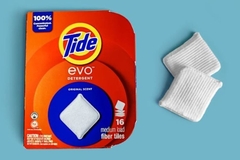Trump’s tariff hike on aluminum and steel hits cosmetics industry, triggering supply chain challenges

US President Donald Trump has imposed 50% tariffs on 407 aluminum and steel product categories, impacting the personal care industry. What was originally discussed as a 25% tariff on raw materials has now been doubled and extended to goods containing, or contained in these materials, impacting cosmetics products and their packaging.
The tariffs are effective immediately and include all materials for cosmetics packaging, such as tins, pumps, and aluminium bottles. The move is expected to impact import costs and raise consumer prices significantly.
“Basically, if it’s shiny, metallic, or remotely related to steel or aluminum, it’s probably on the list,” Brian Baldwin, VP of Customs in the US at logistics giant Kuehne + Nagel International, wrote on LinkedIn this week.
“This isn’t just another tariff — it’s a strategic shift in how steel and aluminum derivatives are regulated.”
The new imposed tariff does not have a transit period and has been effective since August 18.
“Earlier announcements had some in-transit exemptions, so at least importers could make reasonable buying decisions,” Shannon Bryant, president of trade compliance advisory service Trade IQ told Bloomberg. “This one was unique in that way — it’s very much a ‘gotcha.’”
 Products now need to specify their percentage of the targeted materials, which for many brands means chasing suppliers for detailed data.Supply chain complexities
Products now need to specify their percentage of the targeted materials, which for many brands means chasing suppliers for detailed data.Supply chain complexities
The newly introduced set of tariffs are expected to lead to additional supply chain complexity.
Products now need to specify their percentage of the targeted materials, which for many brands means “chasing suppliers for detailed data,” such as aluminum weight, percentage of customs value, and country of cast or smelt [country of production or last heated into solid form],” said Baldwin.
Earlier this year, Trump announced a 25% tariff on steel and aluminum, to which the EU responded by publishing a 99-page list of counter-tariffs on US goods, including shampoos, perfumes, aftershaves, and sunscreens.
As a result, 16 beauty executives united to form the Value of Beauty Alliance. The alliance warned that tariff retaliations against the US could hurt the EU’s personal care industry, one of the region’s biggest sectors.
Aluminium in cosmetics
The beauty industry has increasingly chosen aluminum to package its products. Aluminum is widely known to be indefinitely recyclable and helps companies boost their sustainability profile. Aluminium-based packaging is used to package solutions for several cosmetic products.
Besides packaging, aluminum is commonly used in antiperspirants as it temporarily plugs sweat glands, reducing moisture in the underarm area. It addresses the wetness aspect of sweating and indirectly reduces odor by limiting the sweat that bacteria can metabolize, a dermatologist previously told Personal Care Insights.
Meanwhile, experts forecast that copper, also commonly used in the personal care industry, will receive high tariffs. The Trump administration suggested a 50% tariff on semi-finished copper imports at the end of July.
“This isn’t over,” said Pete Mento, DSV’s global customs director, in a social media post on Monday. “The next list will surely be for copper, and I expect that to be equally as miserable.”
Personal care companies are deliberating on how to address this latest US tariff rollout and navigate an uncertain economic climate. Some are passing the extra costs to consumers, while others turn their attention to different international markets and cut operating expenses, including employees.













